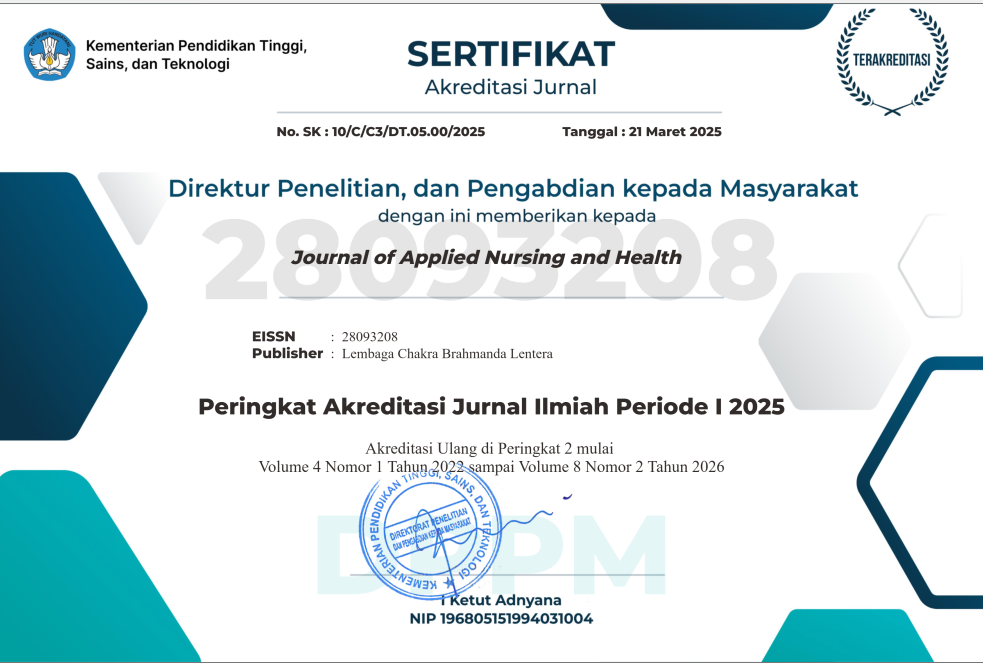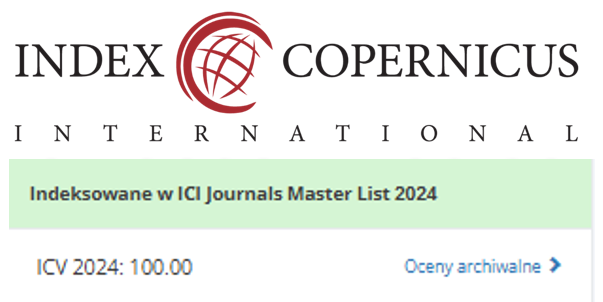Analysis Of Differences In Knowledge Before And After Emergency Education And Skills In Members of Public Safety Center (PSC) 119
DOI:
https://doi.org/10.55018/janh.v6i2.252Keywords:
Emergency management, Health education, PSC 119Abstract
Background: An emergency refers to a life-threatening situation, while an emergency requires immediate intervention to mitigate threats to the victim's life. It represents a critical state that necessitates prompt action to prevent disability or death. An emergency is a clinical condition requiring urgent medical attention to save lives and avoid permanent harm. This study aims to assess whether there is a difference in knowledge regarding the initial management of medical emergency cases among PSC 119 members of the Lahat Regency Health Office before and after receiving health education.
Methods: This study used a quasi-experimental design with a one-group pretest-posttest approach. The sample included 16 members of the PSC at the Lahat Regency Health Office. The paired sample t-test analysis of the pretest and posttest results revealed a significant increase in the knowledge of the PSC 119 members regarding the initial management of medical emergency cases after receiving health education.
Results: The T-test result showed p=0.00 (<0.05), indicating a significant improvement in knowledge after health education. As for skills, the paired sample t-test results between pre- and post-training showed a substantial increase in skill levels. The T-test result was p=0.000 (<0.05), meaning Ha is accepted, and Ho is rejected. Thus, it can be concluded that health education on emergency management positively influences both the knowledge and skills of PSC 119 members."
Conclusion: Health education on emergency management significantly improves the knowledge and skills of PSC 119 members at the Lahat Regency Health Office. Regular training programs are recommended to enhance their emergency response capabilities and ensure better outcomes in critical situations. Future research should evaluate the long-term impact and practical application of such training.
Downloads
References
Atkinson, P., McGeorge, K., & Innes, G. (2022). Saving emergency medicine: is less more? Canadian Journal of Emergency Medicine. Springer.
Crompton, H., Burke, D., Jordan, K., & Wilson, S. W. G. (2021). Learning with technology during emergencies: A systematic review of K‐12 education. British Journal of Educational Technology, 52(4), 1554–1575.
Everly Jr, G. S., & Lating, J. M. (2022). The Johns Hopkins guide to psychological first aid. JHU Press.
Gutterman, A. S. (2024). Emergencies and Older Persons. Available at SSRN 4762810.
Hassankhani, M., Alidadi, M., Sharifi, A., & Azhdari, A. (2021). Smart city and crisis management: Lessons for the COVID-19 pandemic. International Journal of Environmental Research and Public Health, 18(15), 7736.
Lentz, L. M., Smith-MacDonald, L., Malloy, D., Carleton, R. N., & Brémault-Phillips, S. (2021). Compromised conscience: A scoping review of moral injury among firefighters, paramedics, and police officers. Frontiers in Psychology, 12, 639781.
Malamed, S. F. (2022). Medical Emergencies in the Dental Office E-Book: Medical Emergencies in the Dental Office E-Book. Elsevier Health Sciences.
Meilani, R., Alfikrie, F., & Purnomo, A. (2020). Efektivitas Relaksasi Otot Progresif Terhadap Kadar Gula Darah: Penelitian Quasi Eksperimen Pada Penderita Diabetes Militus Tipe 2 Usia Produktif. Borneo Nursing Journal (BNJ), 2(2), 22–29.
Olasveengen, T. M., Mancini, M. E., Perkins, G. D., Avis, S., Brooks, S., Castrén, M., … Escalante, R. (2020). Adult basic life support: 2020 international consensus on cardiopulmonary resuscitation and emergency cardiovascular care science with treatment recommendations. Circulation, 142(16_suppl_1), S41–S91.
Olusegun, O. (2022). Emergency Medical Care and the Law in Nigeria: Towards Protection of Patients’ Rights. J. Health & Biomedical L., 19, 251.
Rahmi, A., & Siregar, H. (2020). Community-Based Recovery For Sexual Violence Victims: The Case of Hapsari. AHKAM: Jurnal Ilmu Syariah, 20(1).
Suryani, S., Hidayah, N., Sutini, T., & Al-Kofahy, L. (2022). The Indonesian survivors’ perspective about recovery from schizophrenia: An exploratory study. Jurnal Keperawatan Padjadjaran, 10(2), 99–106.
Uddin, M. (2021). Addressing work‐life balance challenges of working women during COVID‐19 in Bangladesh. International Social Science Journal, 71(239–240), 7–20.
Downloads
Published
How to Cite
Issue
Section
License
Copyright (c) 2024 Kamesyworo Kamesyworo, Sri Hartati, Eka Haryanti

This work is licensed under a Creative Commons Attribution-ShareAlike 4.0 International License.


















